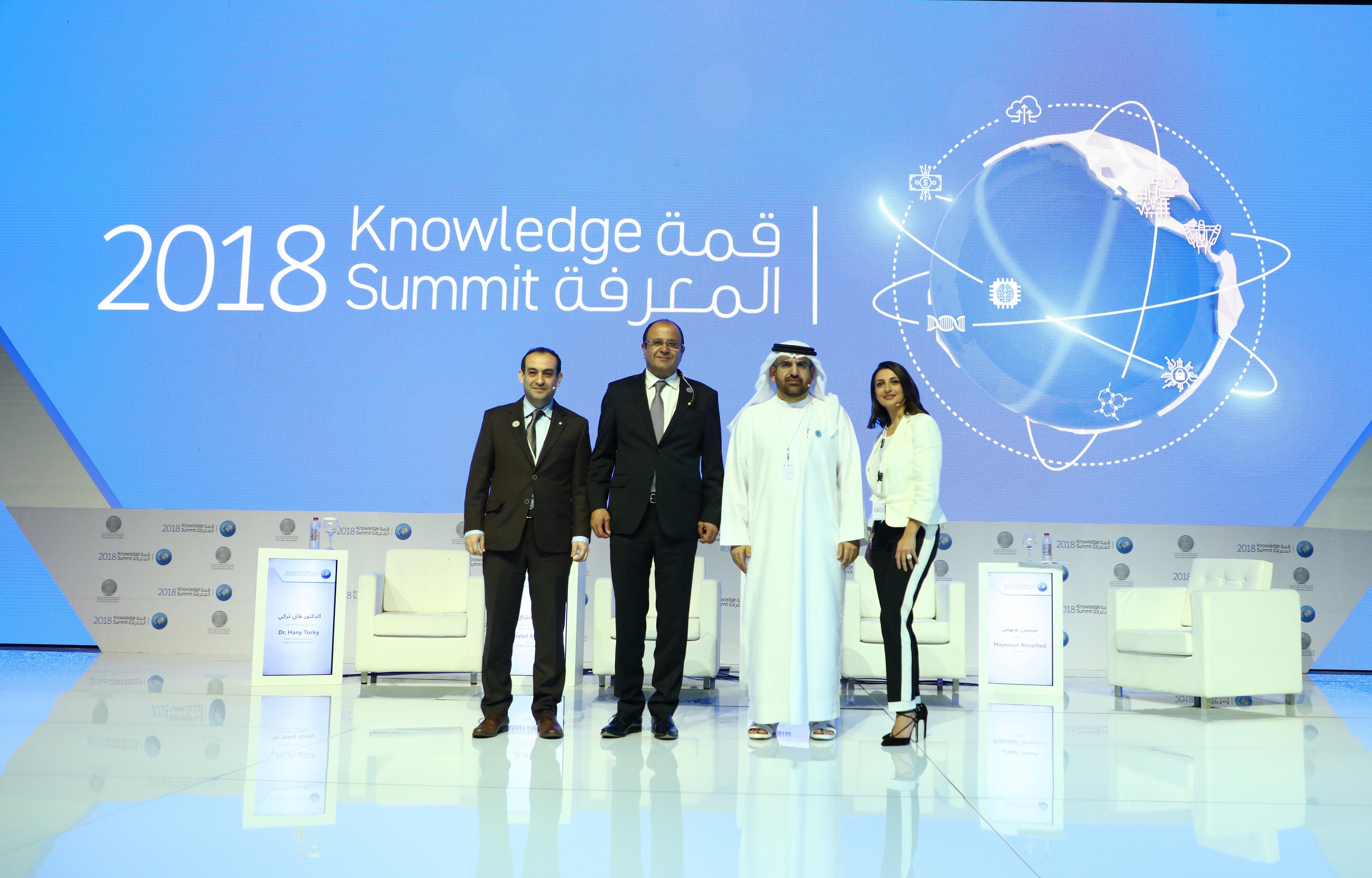Knowledge Summit 2018: UAE Among 7 Countries Set to Lead the World in Future Knowledge
06 Dec 2018
“The Knowledge Summit has demonstrated time and time again that Arabs, who were a nation of knowledge in the past, can be that nation again,” asserted H.E. Jamal bin Huwaireb, CEO of the Mohammed bin Rashid Al Maktoum Knowledge Foundation (MBRF) on day two of the Knowledge Summit 2018.
The session was dedicated to discussing the results of the Global Knowledge 2018, bringing H.E. bin Huwaireb together with Khaled Abdul Shafi, Director of the UNDP’s Regional Bureau for Arab States, and Hany Torky, Chief Technical Advisor of the Arab Knowledge Project. Panellists revealed that the UAE is one of seven nations to lead the world in terms of knowledge in the near future, according to the Index, which named the USA, the UK, Switzerland, Finland, Singapore, the UAE, and Brazil
Organised by MBRF under the patronage of H.H. Sheikh Mohammed bin Rashid Al Maktoum, Vice President and Prime Minister of the UAE, Ruler of Dubai, and the directives of MBRF Chairman H.H. Sheikh Ahmed bin Mohammed bin Rashid Al Maktoum, this year’s Summit is taking place on December 5-6, 2018, at the Dubai World Trade Centre, bearing the theme “Youth and the Future of the Knowledge Economy”.
“This nation is determined to be at the forefront of knowledge-based societies and committed to actively producing and exporting knowledge,” H.E. bin Huwaireb noted. “The UAE has jumped 6 spots on the Global Knowledge Index, coming in 19th. Most countries have 5 or 10-year plans, the UAE has plans for 2071, working for happiness of our people in the next 100 years. The lifespan of people is measured by decades, but that of countries is measured by centuries; therefore, you cannot set short-term plans.”
“When the Summit was launched, we only sought to instil knowledge in the UAE and the Arab world; our audience was aged 40 on average and we received no invitations from any Arab country,” H.E. said. “The difference is clear now; everyone is talking about knowledge and the knowledge economy, people ask for our reports and we are holding ‘Knowledge Weeks’ in Jordan and Egypt. We are now reaping the benefits of the Arab Knowledge Project, launched in collaboration with the UNDP.”
For his part, Khaled Abdul Shafi said: “Today’s Summit focuses on youth, without whom the UN’s 2030 SDGs Agenda cannot be achieved. There is a big knowledge gap between Arab countries and their counterparts, with some notable exceptions such as the UAE. I believe it is due to the quality of education in the region, which relies on spoon-feeding and memorisation rather than innovation.”
“The Global Knowledge Index is not intended to be a ranking of countries, but to analyse the knowledge situation in these countries,” he added. “The countries on the Index will be able to pinpoint weakness and work on improving all seven sub-indexes. We do not only produce this report, but we work with these countries to improve their knowledge output.”
Meanwhile, Dr Hani Torky explained: “There are seven sub-indexes in the Global Knowledge Index, and three of them are about education. They represent the three separate levels of education and help showcase the different challenges in each stage. The platform we use to extract data for the ranking aggregates information from 150 million sources in 16 languages. The results highlighted seven countries that will lead the way in knowledge and we are proud that the UAE was one of the them.”
“The UAE worked on all seven sub-indexes in a balanced way and it is important for other countries to do the same and not neglect any sectors,” Dr Torky concluded, noting that the Index hopes to cover 195 countries in the near future.
The Summit Knowledge 2018 included the launch of three reports in partnership with the UNDP: “Results of the Global Knowledge Index 2018”, “Forecasting the Future of Knowledge”, and “Analysing the Results of the Global Knowledge Index 2017”. The Summit brings together more than 100 speakers including experts, decision makers and stakeholders from around the world in more than 45 discussion panels.
